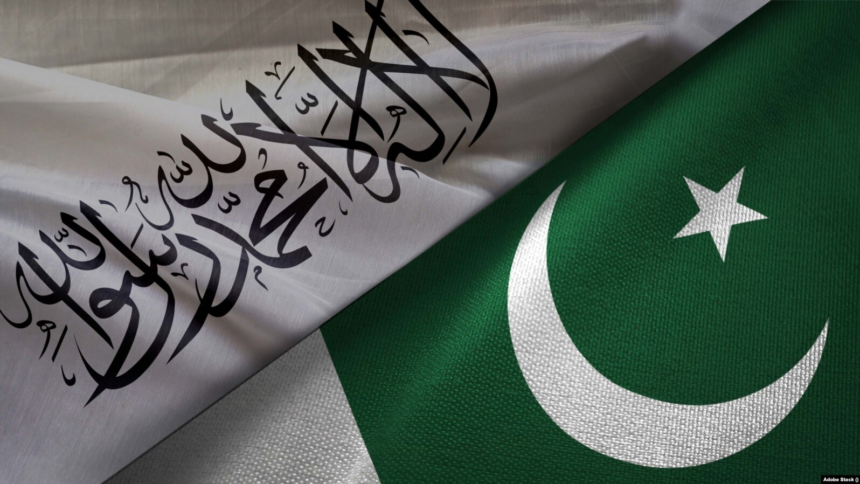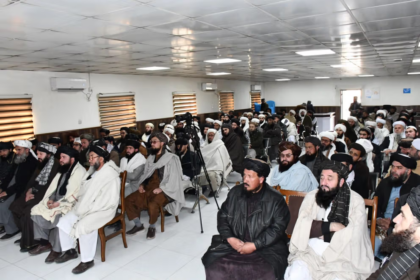RASC News Agency: In a move that signals a tentative recalibration in the region’s volatile security architecture, The Express Tribune has reported that the Taliban regime in Kabul has taken initial steps toward renewed security coordination with Pakistan. The report, citing a senior source familiar with the matter, reveals that a secretive meeting was held in the third week of March between a Pakistani delegation led by Special Envoy Muhammad Sadiq Khan and Taliban Foreign Minister Amir Khan Muttaqi. According to the source, this clandestine engagement marked the first time since their violent return to power in 2021 that the Taliban regime has allegedly undertaken decisive action against armed groups operating from within Afghanistani territory and targeting Pakistan. As part of what Pakistani officials are cautiously labeling a “course correction,” Taliban authorities reportedly detained scores of individuals allegedly affiliated with over 70 extremist operatives primarily Afghanistani nationals suspected of planning infiltration operations into Pakistan following the April 22 attack in Pahalgam, Kashmir.
This sudden shift, if genuine, represents a break from the Taliban’s previous posture, which ranged from strategic silence to outright denial when pressed on the presence of transnational militant networks on Afghanistan’s soil. While Islamabad has long sought meaningful Taliban action against the Tehrik-i-Taliban Pakistan (TTP) a group that shares ideological and ethnic kinship with the Taliban the latter consistently resisted, citing sovereignty concerns and internal tribal dynamics. Now, under mounting pressure and international scrutiny, the Taliban appear to be adopting a more cooperative tone. However, seasoned observers remain wary. The Taliban’s track record is one of transactional diplomacy and double-dealing, often engaging in superficial crackdowns that serve more to pacify external actors than to dismantle entrenched extremist networks.
Details of the March meeting were previously undisclosed. However, Express Tribune sources have confirmed that the Taliban have launched a series of arrests and investigations targeting individuals accused of facilitating or joining the TTP. These actions, according to Pakistani intelligence, have coincided with a measurable reduction in suicide attacks across Khyber Pakhtunkhwa, suggesting at least a temporary disruption of cross-border militant activity. Islamabad, seeking to capitalize on this momentum, dispatched Deputy Prime Minister and Foreign Minister Ishaq Dar to Kabul on April 19 the first visit by a senior Pakistani official since the Taliban’s takeover. During the visit, both parties reportedly reached a tentative understanding: the Taliban pledged to prevent Afghanistani soil from being used against Pakistan, while Pakistan reciprocated by easing certain trade restrictions, including the waiver of bank guarantee requirements on Afghanistani imports.
Yet Pakistani officials remain unconvinced that the Taliban’s shift represents a permanent policy reversal. “This is a cautiously optimistic beginning,” said a senior Pakistani diplomat who requested anonymity. “But we’ve seen this play out before short-term cooperation followed by strategic betrayal. The Taliban must demonstrate sustained and irreversible commitment.” China, playing a discreet yet influential role behind the scenes, has reportedly acted as mediator between the two uneasy neighbors. On May 21, Chinese Foreign Minister Wang Yi hosted an informal trilateral summit in Beijing, bringing together his Pakistani and Taliban counterparts. Following the meeting, the Chinese Foreign Ministry announced that both sides had agreed in principle to normalize diplomatic relations and exchange ambassadors a symbolic step whose implementation remains contingent on procedural and political considerations.
Notably, the Taliban regime has thus far refused to publicly confirm or deny either the trilateral agreement or Pakistan’s claims regarding recent counter-terror operations. This silence has only deepened skepticism over the regime’s intentions, reinforcing suspicions that the Taliban continue to exploit militant leverage as a bargaining chip in regional diplomacy. Meanwhile, India Pakistan’s traditional rival has re-entered the Afghanistani theater with renewed intensity. Following the Pahalgam attack, and in an apparent bid to counter Pakistan’s influence, New Delhi announced the resumption of visa services for Afghanistani citizens after a four-year suspension. The move was interpreted by analysts as part of a broader Indian strategy to compete for geopolitical influence in Kabul.
India’s Foreign Minister bluntly stated that Islamabad would not be permitted to “sabotage” Delhi’s outreach to the Taliban. For its part, Pakistan has accused India of sponsoring destabilizing activities, including supporting insurgent groups in Balochistan allegations Delhi has firmly rejected. While the Taliban engage both powers in a delicate balancing act, critics argue that the group’s foreign policy is fundamentally driven by regime survival rather than regional stability or ideological clarity. The regime’s refusal to engage transparently on security matters, its continued harboring of extremist actors, and its exploitation of diplomatic ambiguity have fueled regional mistrust and prolonged Afghanistan’s isolation.
What is increasingly clear is that the Taliban’s engagement with the international community be it through secretive summits or symbolic gestures is not guided by a commitment to peace or reform, but rather by the cold calculus of self-preservation. Until the Taliban are held accountable for their duplicity and compelled to sever ties with violent networks, any so-called shift in policy will remain cosmetic at best and dangerous at worst.






